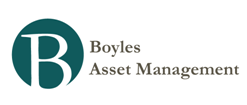Money and Finance
Link to article: Hedge Fund vs. Sovereign
Related book (about Argentina's previous bankruptcy): And the Money Kept Rolling In (and Out): Wall Street, the IMF, and the Bankrupting of Argentina
- Links
‘Flash Crash’ Overhaul Is Snarled in Red Tape (LINK) The CNBC coverage of the Flash Crash, 5 years ago today (video) (LINK) The June 2006 interview with Warren Buffett and Bill and Melinda Gates on Charlie Rose, after Mr. Buffett announced he...
- Links
GMO's Q1 Letter (LINK) GMO's 1Q 2015 Letter includes Ben Inker's discussion on long-term government bonds in "Breaking Out of Bondage" and Jeremy Grantham's "Are We the Stranded Asset? (and other updates)," a discussion of long-term growth...
- The Absolute Return Letter, March 2014: A Century Of Policy Mistakes
Link to: A Century of Policy MistakesA century ago Argentina ranked as one of the wealthiest countries in world. Today it is a shadow of its former self. A long string of policy errors explain the long slide from riches to rags. Europe, like Argentina...
- From Argentina To Athens - By Mohamed El-erian
There are way too many discomforting similarities between what has been happening in Greece recently and Argentina’s 2001 path to economic and financial turmoil.Unless Greek and European officials reflect on key lessons from Argentina's experience...
- Hussman Weekly Market Comment: Preparing For A Greek Default
The yield on 1-year Greek government debt ended last week at 110%, down slightly from a mid-week peak of 130%. Even with the pullback, the Greek yield structure continues to imply default with certainty. All the markets are really quibbling about here...
Money and Finance
Hedge Fund vs. Sovereign: How U.S. Courts Are Upending International Finance
Link to article: Hedge Fund vs. Sovereign
There aren’t many institutions powerful enough to bring a sovereign nation to its knees. Most of those that are wield their power with great care; the rest are dangerous fundamentalists. Last week, the U.S. Supreme Court placed itself -- and the rest of the U.S. federal judicial system -- squarely in the latter camp when it refused to accept an appeal by Argentina against a lower-court decision. The consequences are certain to be dreadful for Argentina. More broadly, the ruling will make it more difficult for countries to free themselves from the burden of over-indebtedness. It will be very bad for international capital markets. Oh -- and it will also diminish national sovereignty.
The case involved Argentina and a group of so-called vulture funds, led by the deep-pocketed and highly litigious hedge fund Elliott Associates, which was demanding repayment in full on old Argentine debt. Elliott had first come to broad public attention in 2000, when it brought -- and won -- a similar case against Peru. That unprecedented victory against a sovereign government, although worth a mere $90 million, so deeply shocked the international financial community that it prompted the International Monetary Fund to undertake a messy and protracted attempt to create a brand-new sovereign bankruptcy court. The Argentina case is much, much bigger -- Argentina owes Elliott over a billion dollars. The total amount that it owes “holdout creditors,” as the vulture funds are more formally known, is some $15 billion. Given that other holdout firms will immediately demand any terms awarded to Elliott, Argentina is not lying when it says that it simply can’t afford to do what the U.S. courts are demanding of it -- which is to pay all the holdouts in full.................
Related book (about Argentina's previous bankruptcy): And the Money Kept Rolling In (and Out): Wall Street, the IMF, and the Bankrupting of Argentina
- Links
‘Flash Crash’ Overhaul Is Snarled in Red Tape (LINK) The CNBC coverage of the Flash Crash, 5 years ago today (video) (LINK) The June 2006 interview with Warren Buffett and Bill and Melinda Gates on Charlie Rose, after Mr. Buffett announced he...
- Links
GMO's Q1 Letter (LINK) GMO's 1Q 2015 Letter includes Ben Inker's discussion on long-term government bonds in "Breaking Out of Bondage" and Jeremy Grantham's "Are We the Stranded Asset? (and other updates)," a discussion of long-term growth...
- The Absolute Return Letter, March 2014: A Century Of Policy Mistakes
Link to: A Century of Policy MistakesA century ago Argentina ranked as one of the wealthiest countries in world. Today it is a shadow of its former self. A long string of policy errors explain the long slide from riches to rags. Europe, like Argentina...
- From Argentina To Athens - By Mohamed El-erian
There are way too many discomforting similarities between what has been happening in Greece recently and Argentina’s 2001 path to economic and financial turmoil.Unless Greek and European officials reflect on key lessons from Argentina's experience...
- Hussman Weekly Market Comment: Preparing For A Greek Default
The yield on 1-year Greek government debt ended last week at 110%, down slightly from a mid-week peak of 130%. Even with the pullback, the Greek yield structure continues to imply default with certainty. All the markets are really quibbling about here...

